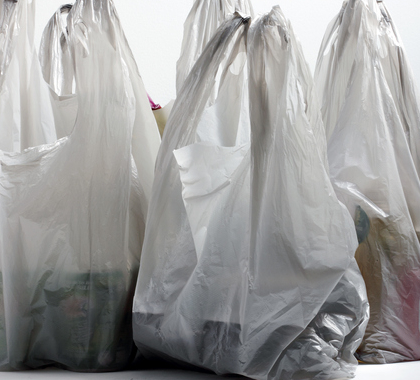A Minneapolis City Council member is proposing a bag fee to circumvent a state law that preempts local bag bans.
Minnesota is one of a growing number of states that has enacted a state-wide law prohibiting local governments from banning or regulating bags. In 2019, Oklahoma, Tennessee, and North Dakota have enacted state laws preempting local bag control, wrote Steve Toloken in Plastics News, a trade publication, on May 3.
“At least 14 states now have laws banning their cities from acting,” Toloken states. “Most of the laws cover many types of packaging and containers, and all materials, but plastics seem to get most of the public attention.”
Northeast Goes After Plastic
Other states have taken a different tack from Mimmesota’s preemption law. New York became the third state to ban thin-film plastic bags, when Gov. Andrew M. Cuomo signed a bag-ban bill into law on April 22. Counties or cities will also be permitted to charge a five cent fee for single-use paper bags.
Maine joined New York when Gov. Janet Mills signed a bag ban bill into law on June 17, banning plastic and imposing a 5 cent fee on paper bags. Vermont followed Maine on the same day, when Gov. Phil Scott signed a bill banning plastic bags, soda straws, and expanded polystyrene food service products.
Bucking the regional trend, the New Hampshire state Senate amended a bill by removing a plastic-bag ban on May 15 (see related article).
Bag Bans, Taxes, Fees
The Minneapolis City Council approved an ordinance that would have effectively banned single-use plastic bags in 2016. It was preempted before it was set to take effect in June 2017, by a state law prohibiting such local actions.
Currently, the Minneapolis City Council is conducting an online survey of residents’ views on imposing a 5 cent fee on both plastic and paper carryout bags, a measure championed by City Council member Cam Gordon, who says it is consistent with state law, Minnesota Daily reported on April 22.
Such ordinances have economic consequences for both buyers and sellers, says Matt Seaholm, executive director of the American Progressive Bag Alliance.
“Whether it is a ban or a tax, it’s a cost the consumer pays,” Seaholm said.
“Bans increase costs for retailers, who with already incredibly tight margins, have to raise grocery and merchandise prices to make up for the new mandate,” Seaholm said.
Working for Consistency
Economic fairness is a justification for the state to exercise its authority, Minnesota state Rep. Jerry Hertaus (R-Greenfield) told Budget & Tax News.
“My strongest, most compelling reason to have preemption in some of these areas is to make sure that with respect to commerce that all businesses are on a level playing field,” Hertaus said.
“There are certain things with regard to commerce and business that should be maintained as a level playing field, and I think preemption in some of these areas is most appropriate,” Hertaus said.
‘Patchwork of Ordinances’
Enacting local ordinances like the bag tax fails to cultivate good relationships between business and government and promote commerce for the benefit of residents, says Hertaus.
“It basically paints a culture of anti-business, anti-friendly,” Hertaus said. “Overall, when you add it all up, I think there is a cumulative effect.”
“We are in favor of statewide uniformity,” Seaholm said. “A local patchwork of ordinances is burdensome on consumers and businesses.
“Oftentimes local governments don’t have the ability or expertise to enact significant policy regulations, and that’s why the discussion is best had at the state level,” Seaholm said.
‘Gummed Up’ Recycling
Waste recycling programs collect many types of materials and then sort them. Thin-film bags complicate the sorting process, says Hertaus.
“When I learned about it during the legislative process, it seemed to be as much a concern about the environment in terms of having this litter getting stuck and trapped in all different areas,” Hertaus said. “But it also showed all the problems with these thin plastic bags getting all gummed up in the rollers and conveyers of the [recycling] system.
“These plastic bags get all jammed up in the conveyer belt, and it seemed as though [the concern] was … as much about that as it was about plastics being in the environment.”
‘Eco-Friendly’ Reuse
Plastic bag taxes and bans would not affect the amount of plastic waste generated in Minneapolis, says Isaac Orr, a policy fellow at the Center of the American Experiment.
“Generally, it takes 130 reuses of canvas bags to make them more ‘eco-friendly’ than a plastic bag,” Orr said. “If you reuse the plastic bag a few times, then the number [of uses] obviously goes up” for canvas bags to become eco-friendlier.
There is an easy way to reduce litter, Orr says.
“Throw the plastic bags away,” Orr said. “It really is as simple as properly disposing of the bags to keep them out of the environment.”
“Be responsible with the use as well as the disposition,” Seaholm said. “Reuse and recycle your plastic grocery bags. It doesn’t take a government mandate for all of us to be responsible stewards of our environment.”
Part of Progressive Agenda?
“Bag fees will not help Minneapolis solve its environmental concerns or other issues the city faces,” Orr said.
“Rather than focusing on practical and affordable solutions to today’s problems, the City Council has got to the point to where they are fixated on enacting more and more progressive legislation such as banning new drive-throughs and requiring home energy audits before a property can be sold, even though these policies will have immeasurably small environmental benefits,” said Orr.
Kelsey E. Hackem ([email protected]) writes from Washington State.
Official Connection
Rep. Jerry Hertaus (R-Greenfield): https://www.house.leg.state.mn.us/members/profile/15400




